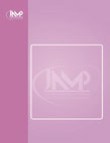Assessment of medical student's learning and study strategies in self-regulated learning
Author(s):
Abstract:
Introduction
Research on medical students shows that adopting self-regulation of effort, time, and study strategies can positively influence academic achievement. The purpose of the current study was to assess learning and study strategies in medical students.Methods
This cross-sectional study was carried out in 2014-2015 at Isfahan University of Medical Sciences. The sample size was determined 360 students based on the results of a pilot study on 30 members of the study population. Medical students in the first to fourth year of their studies were selected through simple sampling randomly. A valid and reliable Persian translation of Learning and Study Strategies Inventory (LASSI) questionnaire was completed by the students. It measures three latent factors of selfregulated learning: Skill, Will, and Self-Regulation. It consists of 80 questions in ten different scales (each scale including eight questions and a variable score of 8-40). Data were analyzed using t-test, correlation analysis, and ANOVA.Results
Considering the ten LASSI scales, the highest mean score belonged to test strategies (28.67±4.44), and the lowest mean to self-testing (21.91±4.91). The results showed significant statistical differences between male and female students in selecting the main idea, attitude, and self-testing. ANOVA and post hoc Tukey tests showed a significant difference between the mean scores of different areas of LASSI among students with different grade point average (GPA) in the university. In all areas except the study aids, the mean scores of students with GPA higher than 17.5 were significantly higher than those of students with GPA lower than 14.5.Conclusion
The results showed that students need help and consultation in most areas of learning and study strategies. Using 10 areas of LASSI can determine the strengths and weaknesses of students in various areas. Knowing their own limitations, students will be able to improve their study habits. Hence, it is suggested to evaluate the students when enrolling at universities and design educational programs based on the students characteristics.Keywords:
Language:
English
Published:
Journal of Advances in Medical Education & Professionalism, Volume:4 Issue: 2, Apr 2016
Pages:
72 to 79
magiran.com/p1521153
دانلود و مطالعه متن این مقاله با یکی از روشهای زیر امکان پذیر است:
اشتراک شخصی
با عضویت و پرداخت آنلاین حق اشتراک یکساله به مبلغ 1,390,000ريال میتوانید 70 عنوان مطلب دانلود کنید!
اشتراک سازمانی
به کتابخانه دانشگاه یا محل کار خود پیشنهاد کنید تا اشتراک سازمانی این پایگاه را برای دسترسی نامحدود همه کاربران به متن مطالب تهیه نمایند!
توجه!
- حق عضویت دریافتی صرف حمایت از نشریات عضو و نگهداری، تکمیل و توسعه مگیران میشود.
- پرداخت حق اشتراک و دانلود مقالات اجازه بازنشر آن در سایر رسانههای چاپی و دیجیتال را به کاربر نمیدهد.
In order to view content subscription is required
Personal subscription
Subscribe magiran.com for 70 € euros via PayPal and download 70 articles during a year.
Organization subscription
Please contact us to subscribe your university or library for unlimited access!



